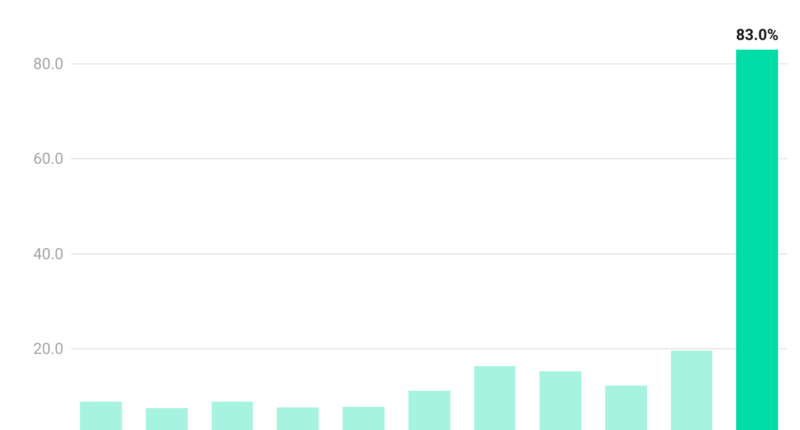Turkey’s inflation rate has risen to 83%, a 24-year record. According to the Inflation Research Group, the annual rate is actually 186.27%.
Why this is happening
Last year, Turkish President Recep Tayyip Erdogan took the unusual move of lowering interest rates in order to stimulate the economy. To combat inflation, most central banks boost interest rates.
Annual price increases in the transportation industry were the highest at 117.66%, followed by food and non-alcoholic beverages at 93%. Prices have risen the most in the transportation, food, and housing sectors.
Going forward
Mr. Erdogan has called interest rates “the mother and father of all evil,” and his economic strategies include intervening in currency markets.
Interest rates were slashed from 19% to 14% last year, causing the Turkish lira to decrease in value, making it more expensive for the country to import products from abroad.
Meanwhile, the Turkish lira fell to a new low of 18.56 per US dollar.
Digging deeper
According to JP Morgan, Turkey’s inflation will continue “abnormally high” until policies become more orthodox. According to former Turkish central bank chief economist Hakan Kara, the record high represents the greatest inflation spike since World War II.
The primary difficulty for Mr. Erdogan’s ruling party as he seeks re-election next year is high inflation and the economic turmoil.
Prices are rapidly rising worldwide as a result of causes such as Covid-related supply problems and the Ukraine crisis, which has driven up energy and food prices.

